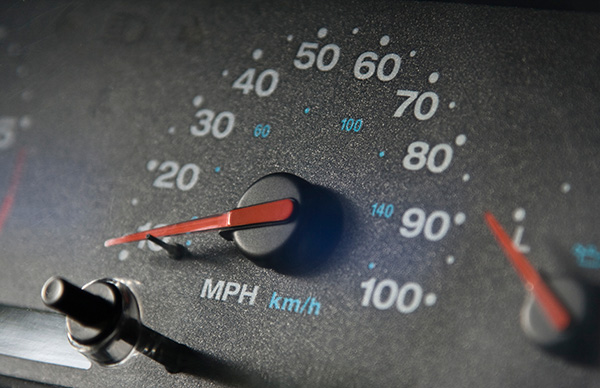
Your car’s speedometer might seem like just another gauge on the dashboard, but it’s more important than most people realize. When it’s not working properly, you’re left guessing how fast you’re traveling, and that’s a risk no driver should take lightly. While it might seem like a minor inconvenience at first, ignoring speedometer issues can lead to more serious consequences, both for your safety and your wallet. Let’s find out why a malfunctioning speedometer is something you shouldn’t overlook.
What Causes Speedometer Problems
Speedometer issues often stem from problems with the vehicle’s speed sensor, wiring, or even the gauge itself. The speed sensor, typically located on the transmission, sends signals to the car’s computer, which then displays the speed on the dashboard. If the sensor fails, becomes damaged, or gets covered in debris, it can disrupt this process.
Wiring problems are another common culprit. Over time, wires can become worn, frayed, or corroded, leading to inconsistent or inaccurate readings. In some cases, the speedometer gauge itself may malfunction due to age or an electrical issue.
Safety Risks Associated with a Malfunctioning Speedometer
Driving without an accurate speed reading is more than just inconvenient—it’s dangerous. For starters, you may unknowingly exceed the speed limit, putting yourself at risk of a ticket or, worse, an accident. Speed limits exist for a reason, and when you’re unable to monitor your speed, you’re more likely to drive recklessly.
Another issue is the challenge of matching the flow of traffic. When you don’t know how fast you’re going, it’s easy to either lag behind or move too quickly, which can lead to collisions. This is especially hazardous in areas with heavy traffic or variable speed limits.
A malfunctioning speedometer can also affect your vehicle’s other systems. Modern cars often rely on speed data to regulate features like cruise control, anti-lock brakes, and even fuel efficiency. When the speedometer isn’t working, these systems might not function properly, further compromising your safety.
Legal and Financial Consequences
Speedometer issues can also hit you where it hurts—your wallet. Driving with a broken speedometer is illegal in many places, and getting caught could result in fines. If an accident occurs and your faulty speedometer is discovered, you could be held liable, even if the crash wasn’t entirely your fault.
In addition to legal trouble, a broken speedometer can lead to unnecessary wear and tear on your vehicle. For example, if your speed sensor is faulty, it may cause your transmission to shift improperly, which can lead to serious repairs down the road.
How to Spot Speedometer Problems Early
The best way to avoid the dangers of a faulty speedometer is to catch issues early. Here are a few signs to watch for:
- Inconsistent readings: If your speedometer needle jumps around or gives wildly inaccurate numbers, it’s a clear sign something is wrong.
- Non-functional gauge: A speedometer that doesn’t move at all is a problem that needs immediate attention.
- Warning lights: Sometimes, a check engine light or other warning light will indicate a problem with the speed sensor or related components.
If you notice any of these signs, don’t wait to get your car checked out.
Is your speedometer acting up? MBClinic in Denver, CO, has you covered. We’ll make sure your vehicle is safe and road-ready. Call now to book your visit!